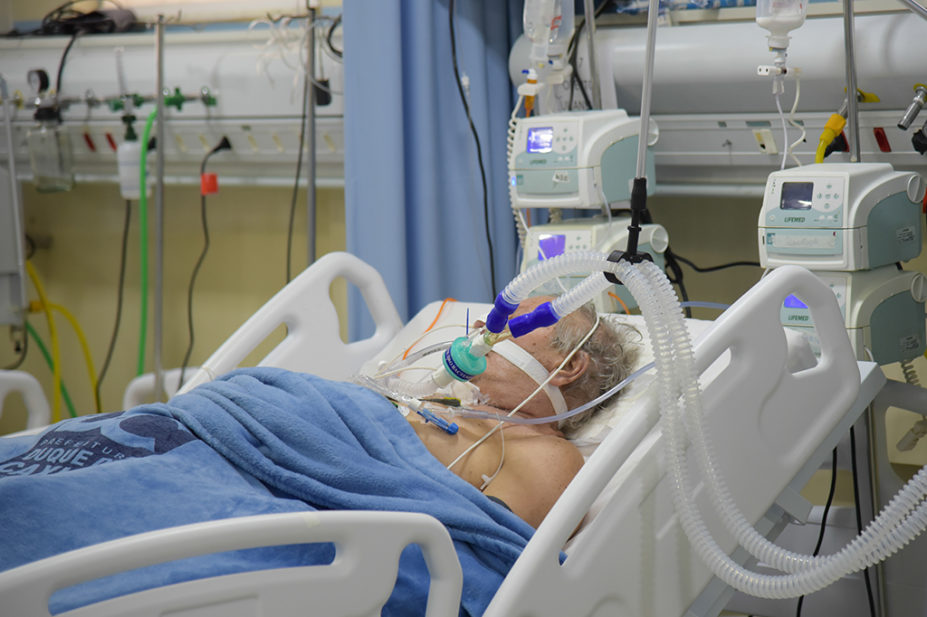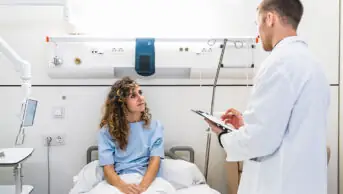
Shutterstock.com
Hospital trusts in England have been asked to risk assess the use of portable oxygen cylinders and areas where patients are receiving acute care without access to piped gas.
A ‘National Patient Safety Alert‘, issued on 10 January 2023 by NHS England and NHS Improvement, said that trusts must review their implementation of NHS England guidance on safe use of oxygen cylinders and complete a risk assessment no later than 20 January 2023.
The alert said that 120 patient safety incidents related to cylinders were reported within the past 12 months, adding that “there is a need to conserve oxygen cylinder use to ensure a robust supply chain process”.
“During periods of extreme pressure, often exacerbated by a surge in respiratory conditions, demand on supplies of oxygen cylinders, especially the smaller sizes, increases in the NHS due to the need to provide essential oxygen treatment in areas without access to medical gas pipeline systems,” it added.
In a statement published on 2 January 2023, Matthew Taylor, chief executive of the NHS Confederation, said that some of its members “have had instances where their oxygen cylinders have ran out temporarily, and that some of their patients have waited over two days for a bed”.
Hospital pharmacists have also told The Pharmaceutical Journal that their teams were managing supplies of oxygen cylinders on “a day-by-day basis”, with one trust extending its medical gas pipeline system to meet “a large increase in demand”.
Stuart Parkes, chief pharmacist at York and Scarborough Teaching Hospitals NHS Foundation Trust, said: “The last two weeks have seen a large increase in demand in oxygen cylinders in acute hospitals.
“[This demand] has been down to several factors,” he said, including an “increase in patients with severe respiratory viruses, including flu and COVID-19 and exacerbations of COPD/asthma who require oxygen; increase in use of temporary areas of hospitals to accommodate patients that do not have piped oxygen, e.g. ambulance corridors and outpatient areas; and increased waiting of patients to be admitted to an inpatient bed, which means they require oxygen cylinders for longer”.
“Pharmacy teams, in collaboration with estates colleagues, are having to manage this on a day-by-day basis with suppliers to ensure sufficient supply to meet demand,” he added.
“Concentrators are being used to increase the length of time that a cylinder lasts for. The difficulty is the time it takes for empty cylinders to be collected and refilled. Different size cylinders can be used but have to be handled, transported and stored safely.”
Parkes added that suppliers had said that more cylinders would be available soon.
Jamie Harris, chief pharmacist at County Durham and Darlington NHS Foundation Trust, said patients who need oxygen while waiting to be handed over from ambulance crews have to use cylinders “and at the maximum 15L/min, a small CD cylinder will only last 31 minutes”.
“We’ve had to work closely with our estates colleagues to ensure cylinder stock is held centrally and that when deliveries are made to the hospital, the stock is distributed as quickly as possible,” he said.
“Things have improved this week [speaking on 6 January 2023], and today we received our cylinder order in full at Durham. It was ‘just-in-time’ stuff though — the store was empty at 09:00, and the delivery arrived at 11:30.”
Harris said his trust was “looking at strategies to reduce usage of our smaller cylinders, such as the use of oxygen concentrators (they can deliver up to 10L/min of 98% oxygen), and cylinders that are in more plentiful supply, such as the E-size (that fit horizontally under patient trollies) and large J-size cylinders”.
However, he added: “Cylinders are no replacement for piped gases long-term as they require careful monitoring to ensure they don’t run out — this isn’t easy when our emergency departments are so busy.”
BOC, a supplier of medical gases, said on its website that oxygen integral valve cylinders “are currently being supplied on a full for empty basis only“.
“This means we can only supply the same amount of cylinders you are returning and any orders placed for more cylinders than are being returned will be adjusted accordingly,” the website said.
You may also be interested in

Only 15% of NHS trusts meet emergency department pharmacy support standards, investigation finds

Hospitals should review pharmacy support in emergency departments, says health safety investigation body
